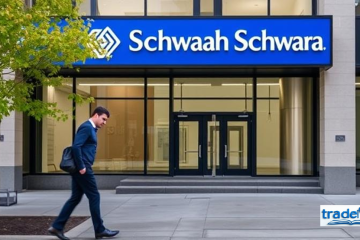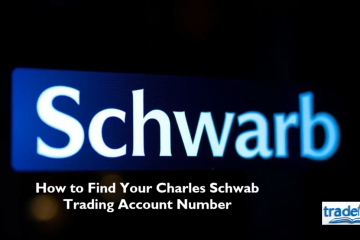In a strategic move that has surprised many industry observers, Cash App, the popular mobile payment service owned by Block, Inc. (formerly Square), has announced its withdrawal from the UK market. The decision comes as the company shifts its focus toward expanding its operations in the United States, where it has seen exponential growth. Cash App Withdraws from UK Market to Focus on US Expansion
This article delves into the reasons behind Cash App’s exit from the UK, the implications for users and competitors, and what this means for the future of digital payments in both regions.
Background of Cash App
Cash App, launched in 2013 by Square (now Block, Inc.), quickly became one of the leading peer-to-peer (P2P) payment platforms in the U.S. Known for its simplicity, user-friendly interface, and additional features like Bitcoin trading and stock investments, Cash App has grown into a financial ecosystem serving millions of users. Cash App Withdraws from UK Market to Focus on US Expansion
Key Features of Cash App
- Instant Money Transfers – Users can send and receive money instantly.
- Cash Card – A Visa debit card linked to the app for spending.
- Bitcoin & Stock Trading – Allows users to buy and sell Bitcoin and stocks.
- Direct Deposits – Users can receive paychecks and government benefits directly.
- Boosts (Discounts & Rewards) – Cash Card users get discounts at select merchants.
Given its success in the U.S., Cash App expanded internationally, launching in the UK in 2018. However, despite initial optimism, the company has now decided to pull out.
Why Did Cash App Exit the UK Market?
1. Regulatory Challenges
The UK’s financial regulations are stringent, particularly for fintech companies. Unlike the U.S., where Cash App operates with relative ease under Square’s existing licenses, the UK’s Financial Conduct Authority (FCA) imposes strict anti-money laundering (AML) and know-your-customer (KYC) requirements. Compliance costs and operational complexities may have made expansion less appealing.
2. Strong Competition from Established Players
The UK already has dominant digital payment services like Revolut, Monzo, Starling Bank, and PayPal’s Venmo (via international transfers). These platforms offer similar or even more advanced features, making it difficult for Cash App to gain significant market share.
3. Limited Adoption Compared to the U.S.
Despite its popularity in America, Cash App struggled to replicate the same level of engagement in the UK. British consumers tend to favor local fintech solutions, and Cash App’s brand recognition was not as strong.
4. Strategic Focus on U.S. Growth
Block, Inc. has been doubling down on U.S. expansion, investing heavily in features like Bitcoin integration, Cash App Banking, and small business services. Exiting the UK allows the company to allocate more resources toward strengthening its position in its home market.
Impact on UK Users
1. Discontinuation of Services
UK users can no longer:
- Send or receive payments via Cash App.
- Use the Cash Card for transactions.
- Access Bitcoin or stock trading features.
2. Alternatives for UK Customers
Existing users must transition to other platforms, such as:
- Revolut (Offers P2P payments, crypto, and multi-currency accounts).
- Monzo & Starling (Digital banks with strong payment features).
- PayPal & Venmo (For international transfers).
- Wise (formerly TransferWise) (For low-cost currency exchanges).
3. Refund and Withdrawal Process
Cash App has provided a timeline for users to withdraw remaining balances. Those who fail to do so may have funds returned to their linked bank accounts.
What This Means for Cash App’s U.S. Expansion
1. Increased Investment in Core Features
With resources freed up from UK operations, Cash App can:
- Enhance its Bitcoin and stock trading functionalities.
- Expand small business payment solutions.
- Improve fraud prevention and security measures.
2. Potential New Services
Rumors suggest Cash App may introduce:
- Savings & loan products (Competing with Chime & Dave).
- Enhanced credit offerings (Similar to Apple Card or Affirm).
- Expanded merchant services (For businesses using Square POS).
3. Possible Future International Expansions
While the UK exit is a setback, Cash App may explore other markets like Canada, Australia, or Europe—but only after strengthening its U.S. dominance.
Competitor Reactions to Cash App’s Exit
1. Revolut & Monzo Stand to Benefit
With Cash App gone, UK-based fintech firms may see increased user migration.
2. PayPal & Venmo Could Expand Further
PayPal may leverage this opportunity to push Venmo-like services in the UK.
3. U.S. Competitors (Zelle, Apple Pay, Google Pay)
In the U.S., Cash App’s rivals will likely ramp up promotions to attract former UK expats or travelers who used Cash App.
Lessons for Fintech Companies Expanding Globally
1. Regulatory Compliance is Crucial
Fintech firms must thoroughly understand local financial laws before expanding.
2. Local Competition Can Be Tough
Established players may already dominate the market, making entry difficult.
3. User Adoption Takes Time
Brand loyalty varies by region; what works in one country may not in another.
Conclusion
Cash App’s withdrawal from the UK highlights the challenges fintech companies face when expanding internationally. While the move allows Block, Inc. to focus on U.S. growth, it leaves UK users seeking alternatives. The fintech landscape remains highly competitive, and companies must carefully assess market conditions before committing to global expansion. Cash App Withdraws from UK Market to Focus on US Expansion
For now, Cash App’s future lies in deepening its U.S. market penetration, possibly introducing new financial products that could redefine digital banking.
Final Thoughts
- UK Users: Need to switch to alternative platforms.
- U.S. Users: Can expect more innovative features.
- Investors: Should watch Block, Inc.’s next moves closely.
Would you like to see Cash App return to the UK in the future, or do you think local fintechs have already won the market? Let us know your thoughts!




